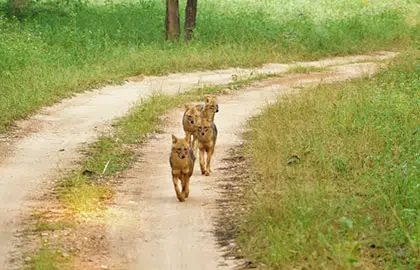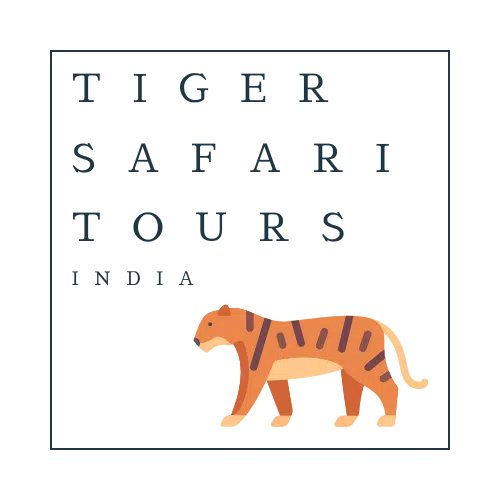Pench Tiger Reserve – Where Jungle Book comes Alive
Overview
Pench National Park was established in 1975 in the Indian state of Madhya Pradesh. It derives its name from the river Pench that flows from North to South and splits the park into two, forming the boundary of Seoni District and Chhindwara District districts of Madhya Pradesh. The national park includes Pench tiger reserve which was enlisted under the Project Tiger in 1992 and is considered as the first reserve that is distributed in two states namely Madhya Pradesh and Maharashtra. Often considered as one of the premier tiger reserves of India, Pench tiger reserve is home to a rich and diverse wildlife and its beautiful setting has been used in Rudyard Kipling’s “The Jungle Book”.

Information
Pench National Park covers an area of 758 sq kms out of which 299 sq kms forms the core area. The Pench Tiger reserve, located on the side of Maharashtra, has a core area of 257.3 sq kms. The park lies in the southern reaches of the Satpura ranges with a rich and dense forest cover including the prominent presence of teak and mahua. The Royal Bengal tiger is an eminent cat species found in the park along with other commonly seen wildlife such as chital, sambar, nilgai, wild boar, Indian leopard and sloth bear. The park is also a shelter for more than 200 species of birds including migratory ones.
- Size – 758 sq kms
- Forest type – Southern tropical mixed deciduous forest
Star Species
In the year 2011, Pench National Park won the “Best Management Award”. The well maintained and treasured park receives herds of visitors every year who follow their hearts to experience the magic of nature in all its glory. The best way to seek such adventure is to stay in a resort in Pench National Park as it combines comfort and wilderness to give you the wildest and most fascinating time of your life.
- Key Mammal – Royal Bengal tiger, Indian leopard, chital, sambar, nilgai, wild boar, Gaur, indian wolf, wild dog, four-horned antelope, barking deer
- Key Birds – Peafowl, junglefowl, crimson-breasted barbet, red-vented bulbul, racket-tailed drongo, Indian roller, Pintail, magpie robin
How to reach
- By train – The Seoni railway station is the nearest rail connectivity that is 30 kms far from the Pench National Park and is connected to Mumbai and other cities. Alternatively, Nagpur railway station, which is 90 kms from the park, is well connected to other major cities in India. One can then get road transfers to the park through cab or taxis.
- By Air – Pench National Park is about 86 kms from the nearest airport that is situated in Sonegaon, Nagpur. Nagpur is well connected to other major cities in India through the air route.
- By road – One can conveniently catch buses from Nagpur, that is approximately 88 kms away from Pench National Park, as the city has a good network of roadways and is well linked to all places in Madhya Pradesh and Maharashtra. One can also hire taxis or other rental vehicles to reach Pench National Park.
Safari
Pench has 3 core zones in Madhya Pradesh:
- Touria,
- Karmajhiri, and
- Jhamtara.
The other two zones fall in the state of Maharashtra, namely:
- Khursapar and,
- Sillari.
Weather
| Month | Minimum°C | Maximum°C |
| Jan | 3 | 12 |
| Feb | 15 | 28 |
| Mar | 20 | 35 |
| Apr | 30 | 40 |
| May | 35 | 45 |
| Jun | 37 | 47 |
| Jul | 34 | 42 |
| Aug | 28 | 38 |
| Sept | 25 | 35 |
| Oct | 25 | 35 |
| Nov | 20 | 28 |
| Dec | 7 | 15 |
Things to carry
Clothing tips for the right safari experience:
- Clothes in the earthy colours to be worn which are greens, beige and grey. Black attracts mosquitoes and should be avoided. Shiny or bright colours are a big no.
- Clothes as per expected weather are very important:
- Summer clothes to be carried should be preferably cotton or cotton blend that is comfortable, breathable.
- Winter clothes to be packed should be planned for layering over each other when worn. Advisably 4-5 woollen clothes than one heavy item.
- A raincoat or a windcheater is also recommended.
- A hat or a cap as per the weather or season is also prescribed.
- Avoid wearing strong fragrances on the safari.
Gallery



